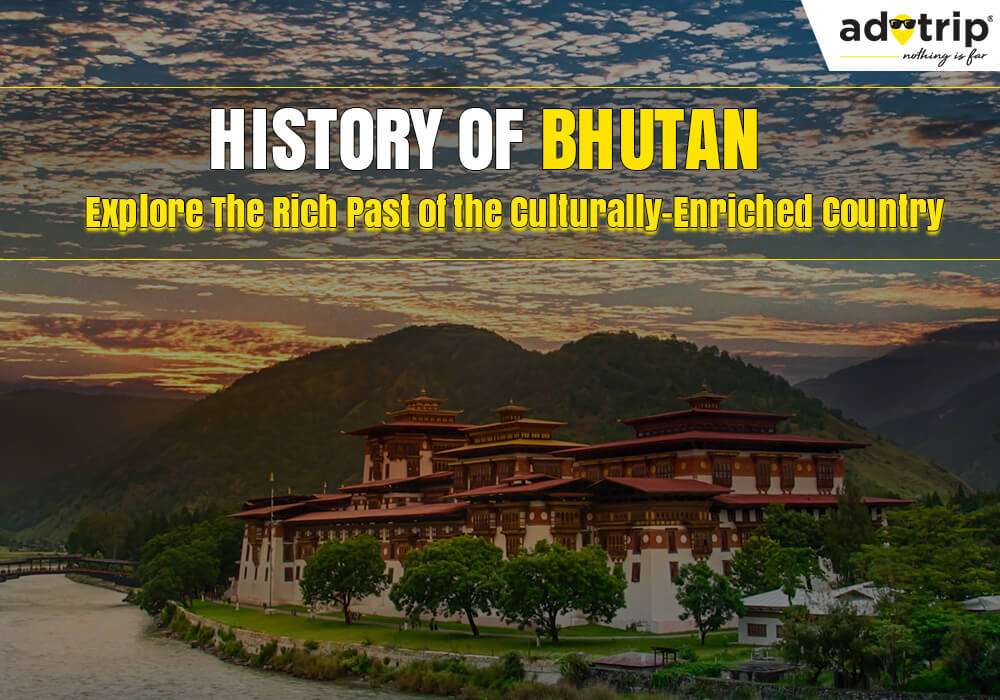
Last Updated At: 18-Aug-2025
History Of Bhutan | Cultural, Festivals And Historical Landmarks
The Bhutan historical landmarks is a fascinating tapestry that's been fashioned from the country's ancient beginnings, distinctive cultural traditions, and peaceful monarchy. Bhutan's history extends back to the eighth century, when Guru Padmasambhava brought Buddhism to the area, nestled in the heart of the Eastern Himalayas. It transformed over the years into a distinctive and well-balanced fusion of Buddhism and Bhutanese culture.
List Of History of Bhutan
Bhutan's monarchy, headed by the Wangchuck dynasty, has played a crucial part in the country's history by leading it on a fantastic modernisation journey while protecting its rich legacy and breathtaking natural surroundings. Here are some of the essential religious history of Bhutan mentioned below:-
- Tourism and Heritage | Visitors Taking in Bhutan's Historical Landmarks
- Cultural Festivals | A Traditional Bhutanese Event Featured Vibrant Dancers
- Environmental Conservation | Bhutanese Forest with Pristine Landscapes
- Gross National Happiness | Promoting Bhutan's Unique Gross National Happiness Index
- Independence and Modernisation | Representing the Nation's Modernisation Efforts
- Wangchuck Dynasty | Current King of Bhutan
- Rise of Monastic Culture | Monks in Traditional Robes
- Guru Padmasambhava | The Guru Brought Buddhism to Bhutan
- Buddhist Influence | Buddhist Artwork on a Bhutanese Monastery
- Ancient Origins | Ancient Bhutanese Temple Surrounded by Lush Greenery
1. Tourism and Heritage | Visitors Taking in Bhutan's Historical Landmarks
Bhutan prides itself on sustainable tourism that respects its rich culture and ecology. Therefore, the two industries are interwoven there. Travellers interested in seeing Bhutan's distinctive history are drawn to its historical sites, monasteries, and festivals. The government's cautious control of tourism ensures a limited influence on the environment, and culture. Bhutan is a unique location for lovers of culture and heritage since tourists can tour historic fortifications, participate in exciting events like Tshechus and see how tradition and modernity coexist peacefully.
2. Cultural Festivals | A Traditional Bhutanese Event Featured Vibrant Dancers
Bhutan's vibrant and deeply ingrained traditions are cultural festivals. One of the highlights of the year is the Tshechus. These vibrant celebrations occur in Bhutanese monasteries and dzongs, including masked dances, music, and religious ceremonies. Each Tshechu celebrates tales and Buddhist teachings and has unique significance and history. These celebrations provide a special chance for residents and guests to fully immerse in Bhutan's cultural heritage, developing a sense of belonging and tradition.
Read more : Teesta Tea Tourism Festival
3. Environmental Conservation | Bhutanese Forest with Pristine Landscapes
In Bhutan, a country renowned for its breathtaking scenery and biodiversity, protecting the environment is given first importance. Bhutan's commitment to upholding its pristine environment is demonstrated by its commitment to carbon neutrality, sustainable development, and sustaining forest cover. The government places equal emphasis on protecting nature and the welfare of its people. Diverse ecosystems are preserved in protected areas like national parks. Bhutan's commitment to environmental sustainability, demonstrated by its 'Green Bhutan' campaign, guarantees that this Himalayan kingdom will continue to be a haven for nature lovers and a global leader in conservation.
4. Gross National Happiness | Promoting Bhutan's Unique Gross National Happiness Index
Well-being is prioritised in administration in Bhutan thanks to the country's distinctive Gross National Happiness (GNH) method of gauging development. Along with economic metrics, GNH considers elements like sustainable development, environmental preservation, cultural preservation, and good governance. The ideology places a high importance on joy, peace, and spiritual principles, reflecting Bhutan's dedication to the total well-being of its population. This ground-breaking idea informs policy choices, ensuring that Bhutan's success is not just material but also improves the standard of living for all, making it a genuinely unique country.
5. Independence and Modernisation | Representing the Nation's Modernisation Efforts
Bhutan's progress toward independence and development is evidence of its original strategy. The nation started down a road of moderate modernisation, taking care to protect its ecology and culture. Bhutan's current identity has been significantly shaped by the Wangchuck dynasty, which has been in control since the early 20th century. The country's dedication to GNH, infrastructure improvement, and environmental policies demonstrates its capacity to welcome change while valuing its rich history, resulting in a harmonic fusion of tradition and contemporary.
6. Wangchuck Dynasty | Current King of Bhutan
The foundation of Bhutan's contemporary history and government has been the Wangchuck Dynasty. The dynasty established the hereditary monarchy and gave stability to Bhutan by uniting the nation. Bhutan has substantially developed under the Wangchuck era while maintaining its cultural character and dedication to Gross National Happiness. The dynasty's leadership still directs Bhutan's development, promoting cohesion, stability, and tradition in this Himalayan nation.
7. Rise of Monastic Culture | Monks in Traditional Robes
One of the pillars of Bhutan's identity has been the development of monastic culture. The introduction of Buddhism by Guru Padmasambhava took hold and flourished, influencing the national ethos. Bhutan's monastic institutions, such as its dzongs and monasteries, have significantly preserved its cultural legacy and as centres of spiritual instruction. Monks, who perform religious rites, educate the populace, and participate in cultural events while dressed in distinctive robes, are essential members of society and greatly impact Bhutan's distinctive cultural landscape.
8. Guru Padmasambhava | The Guru Brought Buddhism to Bhutan
Guru Padmasambhava, sometimes known as the "Second Buddha," is of utmost importance in the history of Bhutan. He brought Buddhism to the area in the eighth century, laying the groundwork for its spiritual foundation. Bhutan is recognised as becoming a safe refuge for Buddhism due to Guru Padmasambhava taming native deities and demons. Bhutan's monasteries, where his teachings and tales are treasured, continue to honour his legacy. Bhutan's cultural and spiritual history still bears the lively imprint of Guru Padmasambhava, who helped to shape the country's way of life.
Read more : Guru Purnima
9. Buddhist Influence | Buddhist Artwork on a Bhutanese Monastery
Bhutan has a strong Buddhist presence, shaping the country's spiritual and cultural landscape. Guru Padmasambhava introduced Buddhism in the eighth century and quickly rose to dominate Bhutanese culture. The monasteries of the country, which are embellished with elaborate artwork and prayer flags, serve as emblems of this religion. The three tenets of Buddhism—compassion, mindfulness, and nonviolence—are ingrained in Bhutanese society and serve as the nation's defining values regarding daily living, governance, and even the Gross National Happiness index.
10. Ancient Origins | Ancient Bhutanese Temple Surrounded by Lush Greenery
The mystical and enigmatic Bhutan history timeline is steeped in secrecy. Because of the presence of early villages and trade routes, it is thought that the region has a long history. Due to Guru Padmasambhava, the introduction of Buddhism in the eighth century represented a crucial turning point that influenced Bhutan's spiritual and cultural character. The country developed over the ages into a distinctive fusion of native traditions and Buddhist teachings, weaving a rich tapestry of history and heritage.
Whether you are a nature lover or a history buff, a trip to Bhutan would open a world of happiness before you. Plan a trip with Adotrip, enjoy amazing flight deals, hassle-free hotel bookings, exciting tour packages, sightseeing, visa assistance and more- All under one roof!
With us, nothing is far!
Frequently Asked Questions About the History of Bhutan
Q1 What are the earliest historical references to Bhutan?
A1. The advent of Guru Padmasambhava, who introduced Buddhism in the eighth century, is when Bhutan was first mentioned in historical records. However, thorough historical records started to exist in the 17th century.
Q2. How did Buddhism arrive and become a prominent part of Bhutan's history?
A2. The eighth century saw the introduction of Buddhism to Bhutan thanks to Guru Padmasambhava. His teachings and the construction of monasteries cemented Buddhism's popularity and helped to mould Bhutan's history by fusing it with the country's native religions.
Q3. What is the significance of the unification of Bhutan under Zhabdrung Ngawang Namgyal?
A3. Zhabdrung Ngawang Namgyal's 17th-century unification of Bhutan was crucial because it brought about Bhutan political evolution, stability, a shared religious identity, and a dual system of government that still has an impact on Bhutan's politics and culture today.
Q4. How did Bhutan's relationship with neighbouring countries shape its history?
A4. Bhutan's historical development has been greatly influenced by its strategic location between India and Tibet. It managed to secure its sovereignty by deftly moving between the two larger neighbours while maintaining friendly ties with both and gaining from economic and cultural exchanges.
Q5. What were some of the major conflicts and treaties that influenced Bhutan's history?
A5. Conflicts with Tibet and British India occurred in Bhutan's history in the 17th and 19th centuries, respectively. The Treaty of Punakha (1910) strengthened Bhutan's ties to British India and laid the groundwork for modern Bhutan. The Treaty of Sinchula (1865) established British influence and solidified Bhutan's link with British India.
Q6. How has Bhutan's stance on remaining independent impacted its historical development?
A6. Bhutan's historical development has been heavily influenced by its dedication to keeping its independence. Bhutan has successfully protected its distinctive culture, legacy, and customs while pursuing modernisation on its terms. It does this by skillfully balancing relations with neighbours and upholding its sovereignty.
Q7. What led to Bhutan's modernisation and opening up to the global community?
A7. In the 20th century, Bhutan's progressive modernisation sought to raise living standards while maintaining the local environment and culture. During the reign of King Jigme Singye Wangchuck (1972–2006), significant reforms were implemented, and the country engaged with the international world to achieve sustainable growth and recognition.
Q8. How did the Wangchuck dynasty contribute to the stability and progress of Bhutan?
A8. Bhutan's stability and advancement have been made possible largely thanks to the Wangchuck dynasty. The monarchy has consistently led Bhutan since its founding in 1907, advancing excellent administration, education, and modernisation while preserving Bhutan's distinctive culture and environment.
Q9. What were the key events leading up to Bhutan's transition to a constitutional monarchy?
A9. The visionary reforms of the Fourth King, Jigme Singye Wangchuck, which included the creation of a National Assembly and the writing of the constitution in 2008, marked the beginning of Bhutan's transition to a constitutional monarchy.
Q10. How does Bhutan preserve its historical sites and traditions in the face of modern changes?
A10. Bhutan has stringent rules to strike a balance between modernity and preservation. Development and historical preservation are balanced. Since Bhutan is committed to achieving Gross National Happiness, cultural preservation will always be a key component of its development. Education encourages cultural values.
--- Published By Adotrip
Latest Blogs

Cash in the Wild: My Safari Adventure Across Kenya with Only...

One Day Picnic Spot Near Pune - Adventure, Trekking and Natu...

One Day Picnic Spots Near Mumbai - Monsoon, Adventure, Beach...
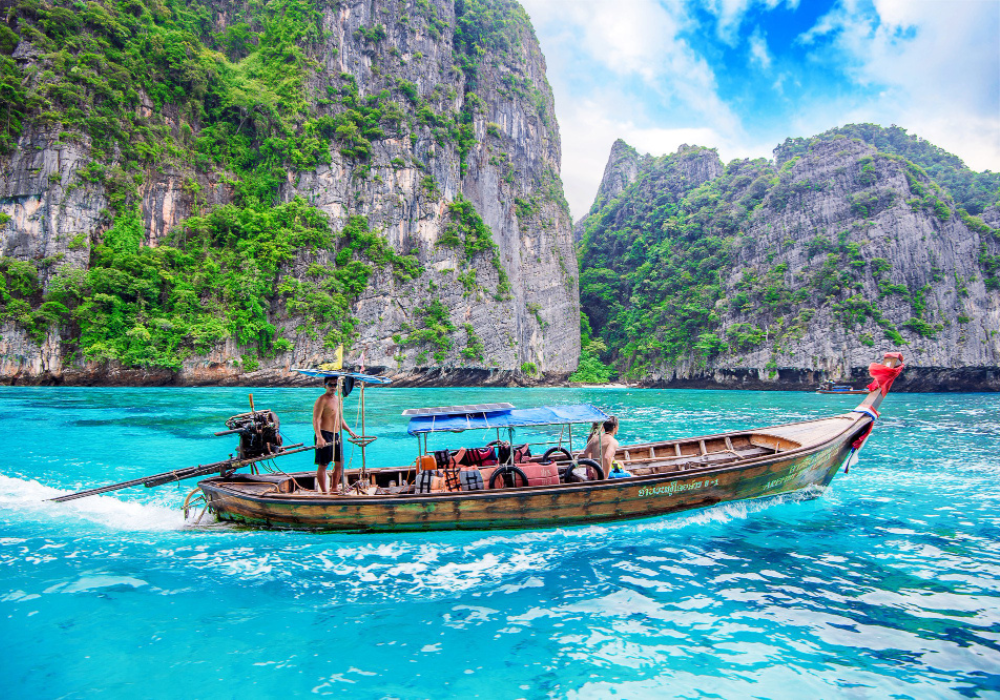
The Best Places to Go in Thailand in 2025
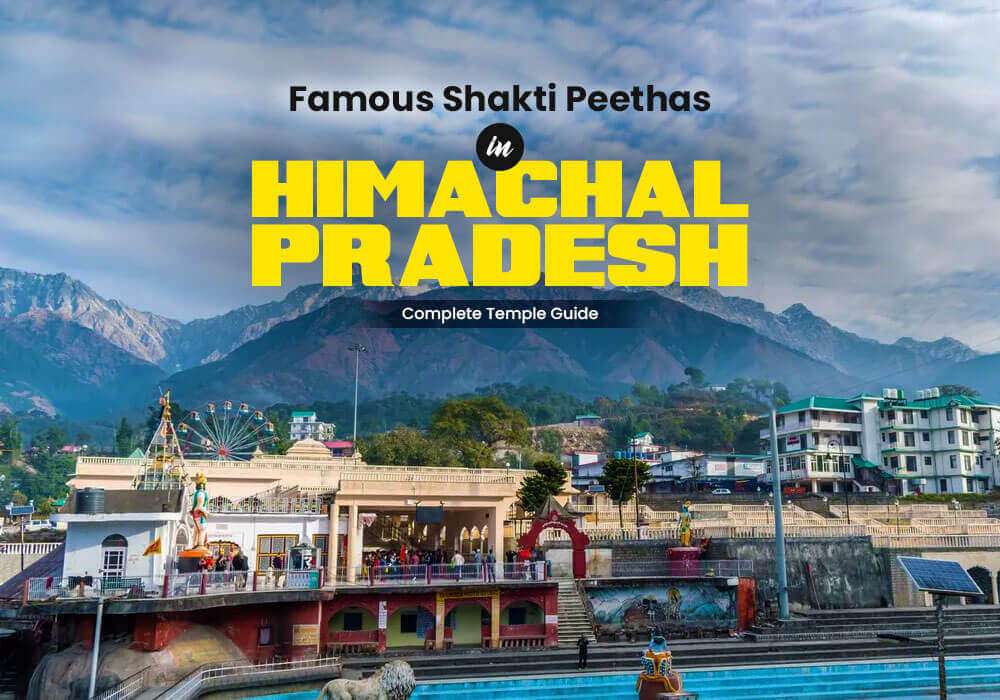


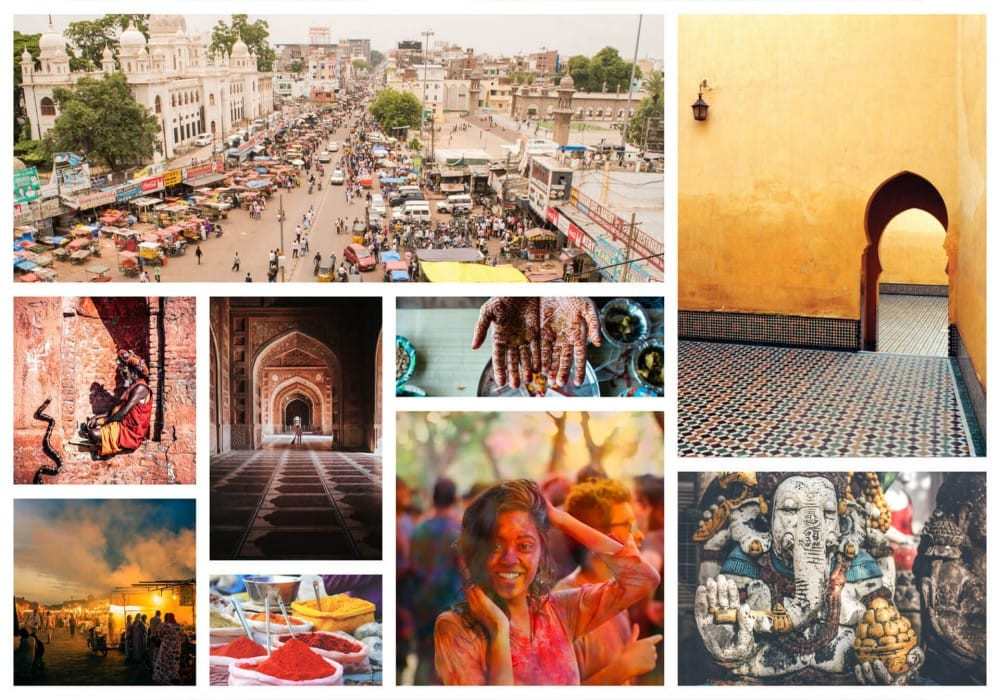
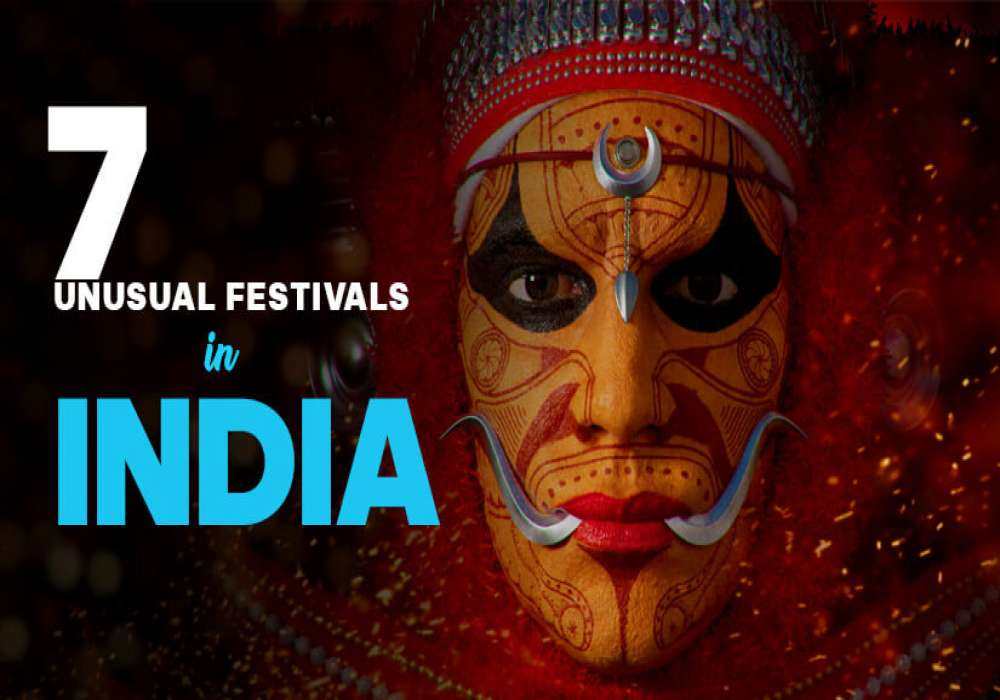


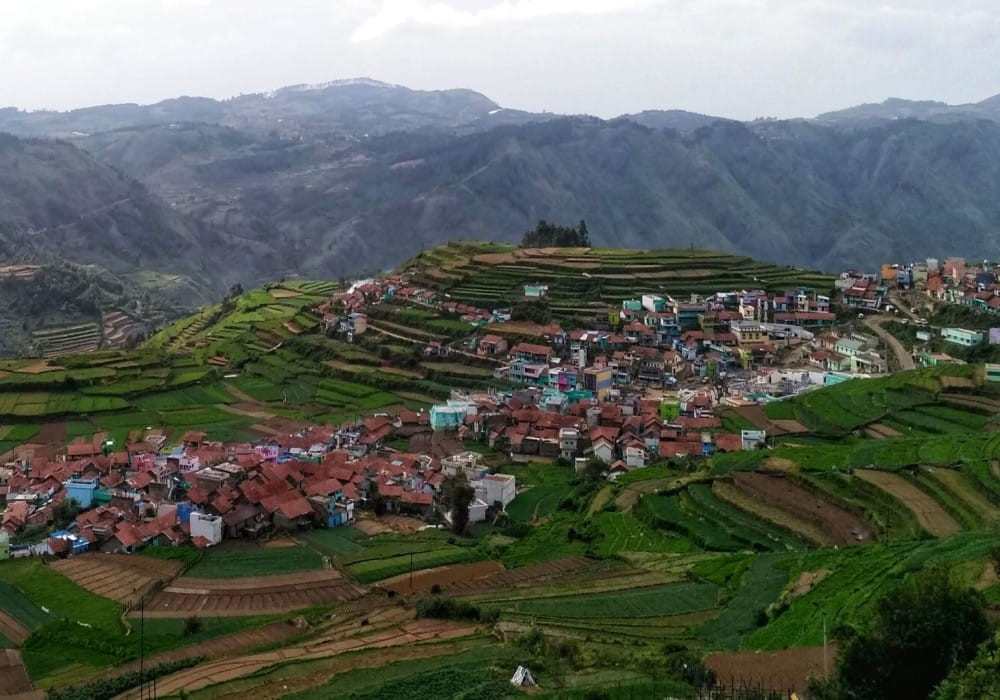

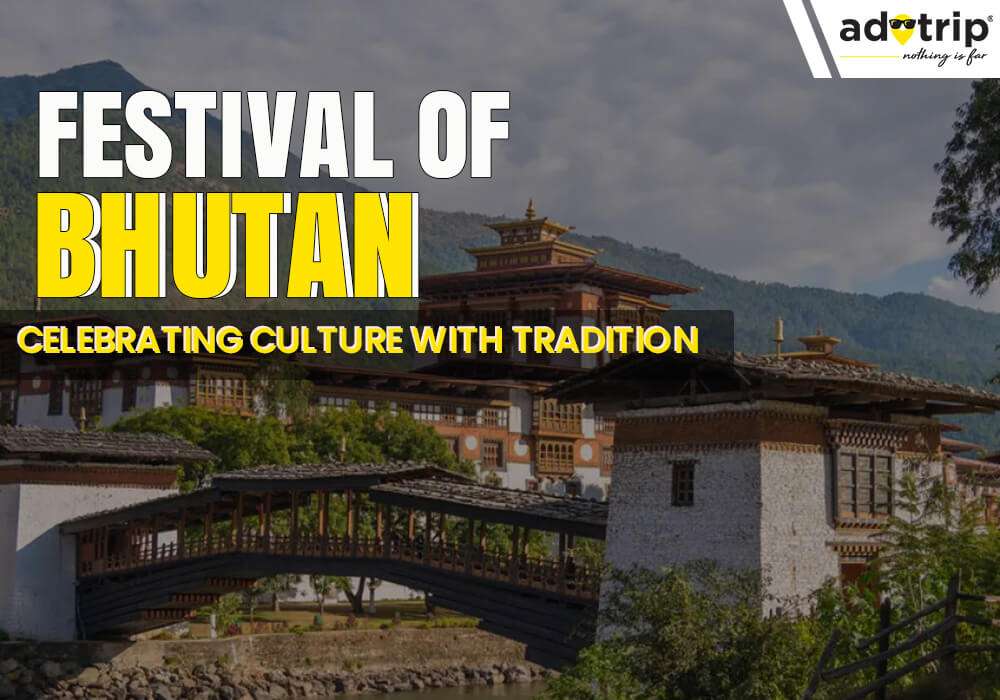

 (1).jpg)
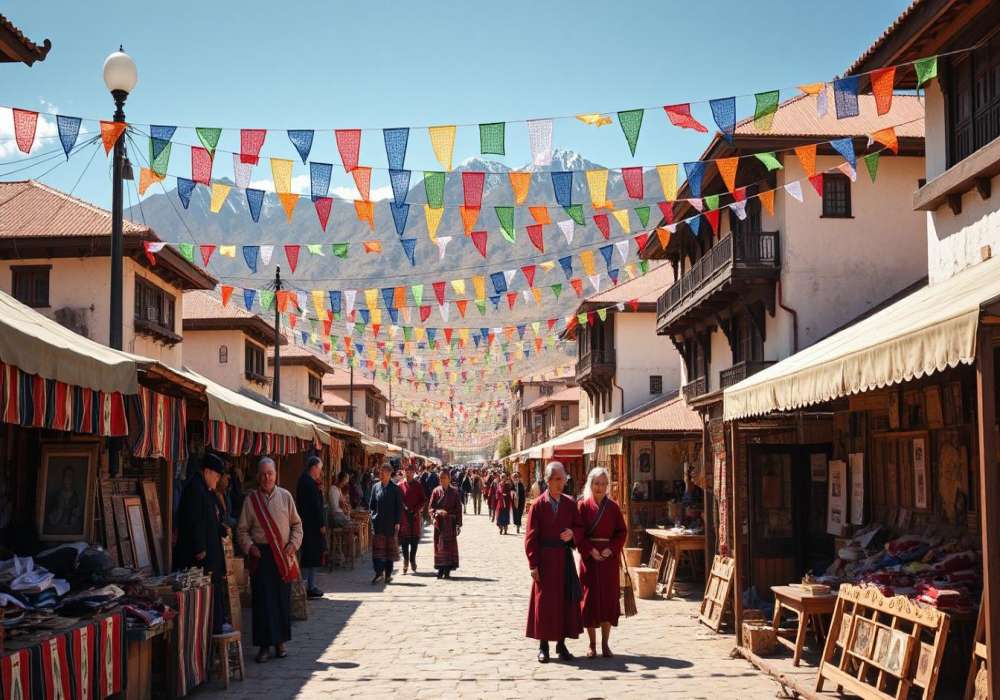

 Dubai
Dubai Malaysia
Malaysia USA
USA





